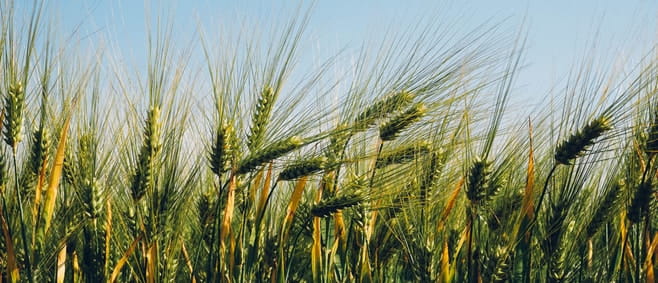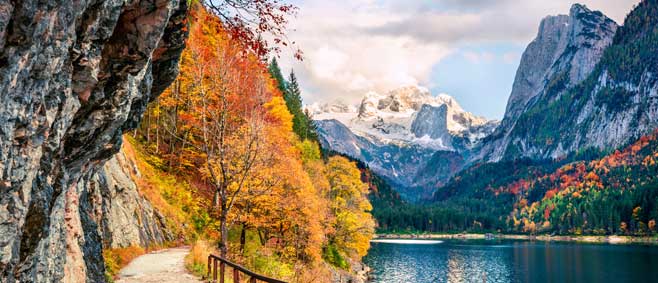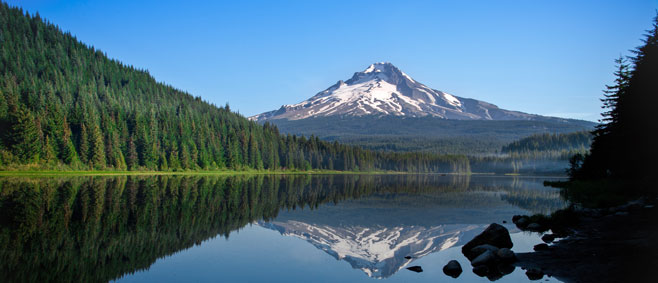Rangeland sciences
The beauty and resilience of the world’s rangelands — spanning deserts, grasslands and savannahs — call for skilled stewards who can balance ecological health with human needs. Earning a rangeland sciences bachelor’s degree online from Oregon State University will give you the expertise to pursue exciting outdoor careers that address critical challenges such as habitat fragmentation, invasive species and water scarcity.
This interdisciplinary program weaves ecological, social and political systems into a comprehensive framework, equipping you to sustainably manage diverse landscapes. You’ll learn to apply cutting-edge management tools and techniques through hands-on coursework and real-world applications, preparing for high-demand careers in land stewardship, conservation and resource management. From protecting ecosystems to supporting livelihoods, you’ll learn to play a vital role in shaping the future of our wildlands.
Skills you’ll gain in OSU’s online rangeland sciences degree program
As a student in Oregon State’s online rangeland sciences degree program, you’ll gain the in-demand skills you need to stand out in the job market and level up your career. You’ll learn from expert Oregon State faculty who have real-world experience in the field.
- Habitat management
- Sustainable livestock grazing systems
- Ecological restoration
- Rangeland stewardship
- Shrubland or grassland ecology
- Wildland plant identification
- Rangeland policy and economics
Program details
Take part in field-based, applied courses and laboratories as you acquire advanced scientific knowledge of the ecological processes and social drivers influencing rangeland ecosystems around the globe. You’ll study a variety of major environmental issues including desertification, mineral extraction, overgrazing and urbanization.
The online rangeland sciences program is offered by Oregon State’s College of Agricultural Sciences.
Degree requirements
A minimum of 180 quarter credits — at least 60 of which must be upper-division credits — are required to graduate with your degree in rangeland sciences, including:
- OSU’s Core Education
- Major requirements: Rangeland sciences

Additional program features
Transfer credits
Some degree requirements may be transferred from other institutions. Please note that a minimum of 45 credits of the last 75 credits in this degree program must be completed at Oregon State (online or on campus) to meet the academic residency requirement.
Previously earned credits must be reviewed upon admittance to OSU for appropriate articulation. Additional information about transferring credits is available through OSU’s Transfer Credit Central.
Pursue an honors degree online
As an undergraduate degree-seeking student, you can apply to earn an honors degree online in your academic major. Earning this prestigious degree gives you the opportunity to collaborate with faculty on research, complete a comprehensive thesis experience and engage in co-curricular activities.
Explore certificates and microcredentials
You can gain highly specialized skills that are in demand by employers — and do it with less of a time and financial commitment — when you earn a certificate or microcredential online with Oregon State. Choose from a large collection of short-form offerings that can help you upskill quickly.
Careers related to rangeland sciences
The knowledge you acquire in Oregon State’s online rangeland sciences degree program will help you fill in-demand jobs in the global marketplace. With more than 40% of the world classified as rangeland, there are an abundance of opportunities globally for you to provide insights in economic sectors that need range management experts.
Oregon State’s one-of-a-kind rangeland sciences degree program prepares you to pursue professional opportunities that address critical issues confronting the social, political, economic, ecological and environmental development of the nation and the world.
Job market outlook
Use the interactive tool on this page to discover employment trends, top occupations and salary details for professionals who have skills related to rangeland sciences. Please be aware that completing a program related to the job market information shown here does not guarantee employment or a specific salary.
Request
information
To ensure that you receive emails from us, please add "ecampus@oregonstate.edu" and these domains to your safe senders list: “@oregonstate.edu,” “@discover.oregonstate.edu” and “@email.oregonstate.edu.”
† All mobile information you share will remain confidential and will never be given to external sources. Any costs associated with receiving a text message are the responsibility of the individual receiving the message. Opting in to this mobile text messaging service from Ecampus is free of charge, however, message and data rates may apply from your wireless carrier.
Contact
Our enrollment services team can help answer questions about online learning at Oregon State Ecampus and how to get started.
8 a.m-4 p.m. PT Monday-Friday
Contact Ecampus or book an appointment
To ensure that you receive emails from us, please add "ecampus@oregonstate.edu" and these domains to your safe senders list: “@oregonstate.edu,” “@discover.oregonstate.edu” and “@email.oregonstate.edu.”





